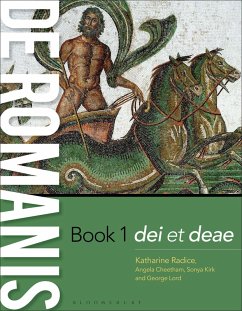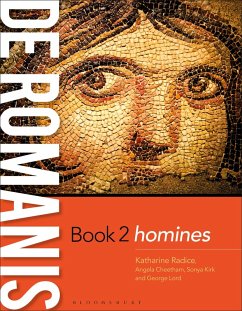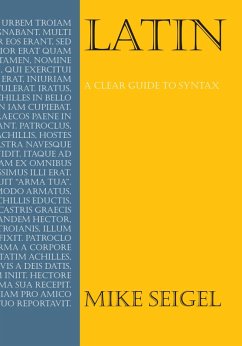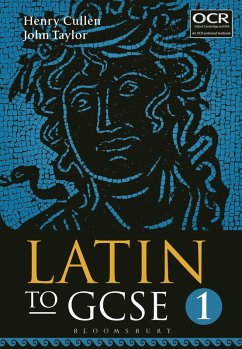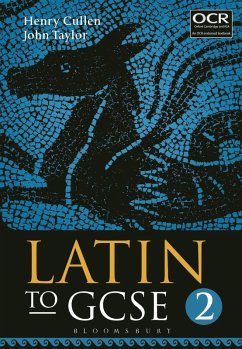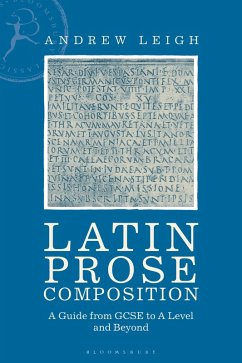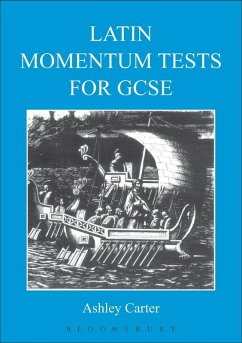
Latin Beyond GCSE (eBook, PDF)
Versandkostenfrei!
Sofort per Download lieferbar
15,95 €
inkl. MwSt.
Weitere Ausgaben:

PAYBACK Punkte
8 °P sammeln!
Latin Beyond GCSE covers all the linguistic requirements for the OCR AS and A Level in Latin. It aims to bring students to a point where they can tackle original Latin texts with confidence. Although designed as a continuation of Latin to GCSE, it is self-contained and can be used independently. This new edition is brought in line with the new OCR specifications and benefits from a completely redesigned layout, with added colour and images. The answer key is available on a companion website. The first part of the book introduces new constructions and the translation of sentences from English t...
Latin Beyond GCSE covers all the linguistic requirements for the OCR AS and A Level in Latin. It aims to bring students to a point where they can tackle original Latin texts with confidence. Although designed as a continuation of Latin to GCSE, it is self-contained and can be used independently.
This new edition is brought in line with the new OCR specifications and benefits from a completely redesigned layout, with added colour and images. The answer key is available on a companion website. The first part of the book introduces new constructions and the translation of sentences from English to Latin, with reading passages at AS standard. The next sections provide translation and comprehension passages at AS and A-level, including verse unseens, scansion, and a list of 300 common poetic words. Next come longer unadapted extracts from a range of authors. Finally there is a reference section including a summary of all constructions, a comprehensive grammar, and a general vocabulary of about 1200 Latin words.
This new edition is brought in line with the new OCR specifications and benefits from a completely redesigned layout, with added colour and images. The answer key is available on a companion website. The first part of the book introduces new constructions and the translation of sentences from English to Latin, with reading passages at AS standard. The next sections provide translation and comprehension passages at AS and A-level, including verse unseens, scansion, and a list of 300 common poetic words. Next come longer unadapted extracts from a range of authors. Finally there is a reference section including a summary of all constructions, a comprehensive grammar, and a general vocabulary of about 1200 Latin words.



